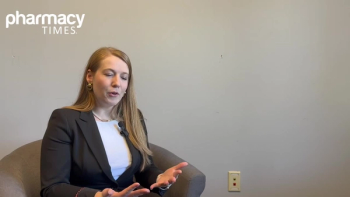
Pharmacists play a crucial role in managing drug interactions and optimizing treatment with CDK4/6 inhibitors for HER2-positive breast cancer patients.

Pharmacists play a crucial role in managing drug interactions and optimizing treatment with CDK4/6 inhibitors for HER2-positive breast cancer patients.

Pharmacists should leverage their accessibility to boost immunization rates among individuals undergoing cancer treatment.
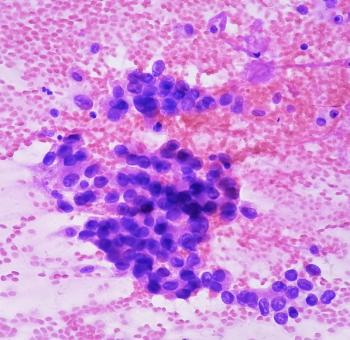
Interim trial data presented at the 2025 World Conference on Lung Cancer shows pumitamig’s promising efficacy in patients with extensive stage small cell lung cancer (ES-SCLC).
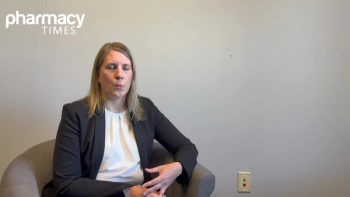
Pharmacists enhance patient care by managing CDK4/6 inhibitors, addressing adverse effects and ensuring effective therapy selection in oncology.
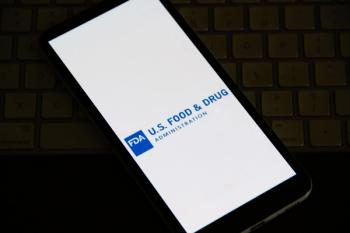
The approval is supported by clinical findings from the EMBER-3 trial.
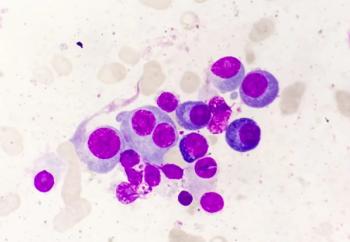
In a dose-escalation portion of LINKER-MM4, linvoseltamab monotherapy demonstrated a high overall response rate (ORR) and minimal residual disease (MRD) negativity in both transplant-eligible and transplant-ineligible patients with newly diagnosed multiple myeloma (NDMM).

New IMWG/IMS guidelines enhance risk assessment for multiple myeloma, revealing daratumumab's impact on patient outcomes in real-world settings.

Pharmacists navigate the evolving hematology-oncology landscape, utilizing genetic insights and innovative therapies to enhance patient care.

New research links rapid CAR T-cell expansion to delayed neurotoxicity in patients with multiple myeloma.

Hercessi shows promising efficacy and safety in treating HER2+ metastatic breast cancer (MBC), with no significant risks from switching from Herceptin.

Pharmacists navigate rapid oncology drug therapy changes, enhancing patient care through education, biomarker insights, and tailored counseling strategies.

Elranatamab enhances MRD negativity in relapsed/refractory multiple myeloma post idecabtagene vicleucel, promising improved treatment outcomes.

Explore the impact of CDK4/6 inhibitors in HR+/HER2– breast cancer treatment and the essential role of oncology pharmacy practice.

New clinical trial results reveal that giredestrant combined with everolimus significantly enhances progression-free survival in patients with advanced ER-positive breast cancer.

Belantamab mafodotin with bortezomib shows promising survival benefits for lenalidomide-refractory multiple myeloma patients.

Idecabtagene vicleucel shows a lower infection risk than other BCMA therapies for multiple myeloma.

Linvoseltamab combined with carfilzomib shows promising results in treating relapsed/refractory multiple myeloma.
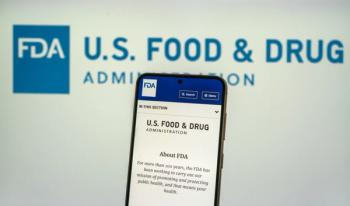
The approval is supported by findings from the MK-3475A-D77 study.

Iberdomide enhances chimeric antigen receptor (CAR) T-cell therapy effectiveness in multiple myeloma, boosting immune response and cell functionality.

Intravenous immunoglobulin (IVIG) treatment significantly reduces infection rates in multiple myeloma patients receiving BCMA bispecific antibodies, showcasing its clinical benefits.

Teclistamab and other bispecific antibodies enhance multiple myeloma treatment but significantly increase infection risks, necessitating proactive management strategies.

Teclistamab shows promising results in newly diagnosed multiple myeloma, enhancing tolerability and achieving high rates of minimal residual disease negativity.

Elranatamab combined with daratumumab and lenalidomide shows promising results for treating newly diagnosed multiple myeloma, enhancing patient outcomes.
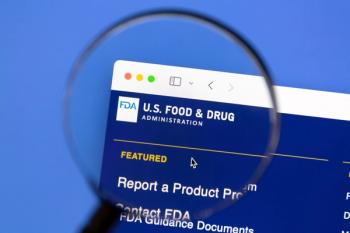
Additionally, the FDA granted a provisional interchangeability designation to both biosimilars.

NCCN updated its small-cell lung cancer guidelines, introducing lurbinectedin for maintenance therapy and removing the chemotherapy-free interval for better treatment strategies.

Cemiplimab was also superior in improving progression-free survival, objective response rate, and duration of response in patients with non–small cell lung cancer (NSCLC).

The 2025 International Myeloma Society Annual Meeting unveils crucial updates to IMWG guidelines, enhancing response assessment and treatment strategies for multiple myeloma.

Breast cancer survivors face a small but significant risk of developing secondary cancers, influenced by age, treatment, and lifestyle factors.

Promising phase 2 results for taletrectinib in ROS1+ lung cancer show significant tumor shrinkage and manageable adverse effects.

A recent phase 3 study reveals osimertinib combined with chemotherapy offers unprecedented survival rates for patients with advanced EGFR-mutated lung cancer.